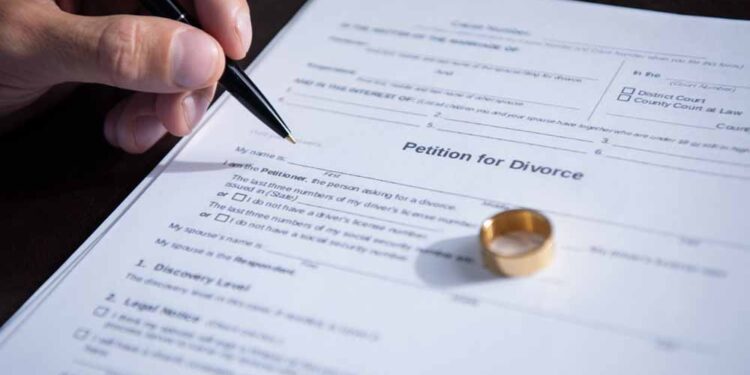Receiving divorce papers can be overwhelming, but preparation is the key to navigating the process smoothly. Working with a qualified family lawyer is among the first and most critical steps. Their expertise can guide you toward a fair and equitable outcome. This article aims to help you collect the essential information required for your divorce case, ensuring a productive partnership with your divorce lawyer.
Step 1: Hire a Family Lawyer and Submit Your Response
Securing an experienced family lawyer should be your top priority. Their understanding of divorce laws, mediation, and courtroom strategies can make a significant difference in your case.
Responding to Divorce Papers
Once you’ve hired a family lawyer, they’ll help you file your official response to the divorce papers within the required timeframe. This is a critical step to ensure your voice is heard in court. After submitting your response, you’ll need to collaborate closely with your lawyer, starting with organizing the necessary documentation.
Step 2: Understand the Role of Documentation
Why Documentation is Crucial
Gathering detailed records is essential for building a strong case. These documents clarify shared and individual assets, helping to differentiate marital property from personal property. Transparency is vital; incomplete or inaccurate information can lead to complications and weaken your case.
Step 3: Gather Essential Financial Documents
What to Collect:
- Pay stubs for both parties.
- Tax returns (individual and joint) for the last few years.
Why They Matter:
These documents provide a clear picture of income levels and financial contributions during the marriage. This information is crucial for determining potential spousal support or child support obligations.
Step 4: Collect Proof of Asset Ownership
What to Collect:
- Deeds or titles for homes, vehicles, and other property.
- Documentation for valuable personal belongings, such as jewelry and art.
Why They Matter:
Proof of ownership helps establish the value of marital and non-marital assets, ensuring equitable distribution during court proceedings or mediation.
Step 5: Compile Account Information
What to Collect:
- Statements for bank accounts, investment portfolios, and retirement plans.
- Records of debts, including credit card balances, loans, and mortgages.
Why They Matter:
These documents present a comprehensive view of your financial landscape, which is necessary for calculating the division of assets and liabilities. This ensures that nothing is overlooked during the settlement process.
Step 6: Tips for Providing Accurate and Complete Information
- Avoid withholding information; inaccuracies can harm your case.
- Arrange records in chronological order to simplify the review process.
- Digital records make it easier to share information securely with your lawyer.
Step 7: Stay Proactive and Communicate with Your Family Lawyer
Regular communication with your lawyer is critical. Confirm that they have all the necessary information and provide updates about any changes in your financial or personal situation. Being proactive ensures that your lawyer can effectively advocate on your behalf.
Collecting and organizing documentation for your divorce case is vital for achieving a fair outcome. By working closely with your family lawyer and providing accurate, thorough records, you empower them to build a strong case for you. Remember, preparation is a form of taking control. With the right steps, you can navigate the divorce process with confidence and clarity.
FAQs on Seeking a Family Lawyer’s Help During Divorce
Q: Why is hiring a family lawyer the first priority during a divorce?
A: Hiring an experienced family lawyer is crucial because they can guide you through the legal process, help you respond to divorce papers correctly, and prepare you for the next steps. A lawyer ensures your rights are protected and helps you navigate this often complex and emotional time.
Q: What is the role of documentation in a divorce case?
A: Gathering detailed records is essential to clarify shared and individual assets. Transparent documentation helps build a strong case, ensuring all financial and personal details are accurately represented in court or mediation.
Q: What financial documents should I gather, and why do they matter?
A: You should collect: Pay stubs for both parties and tax returns (individual and joint) for the last few years. These documents provide insight into income levels, financial contributions, and potential spousal or child support obligations.
Q: What proof of asset ownership should I provide?
A: Gather deeds or titles for homes, vehicles, and other properties, as well as documentation for valuable personal belongings like jewelry or art. These records establish ownership, value, and help determine equitable distribution during the divorce process.
Q: Why is compiling account information necessary, and what should it include?
A: Collect statements for bank accounts, investment portfolios, retirement plans, and records of debts like credit card balances or loans. This provides a clear financial overview and ensures all assets and liabilities are considered in the settlement.
Q: How can I ensure my information is accurate and complete?
A: Honesty and thoroughness are key. Organize records in chronological order and create digital copies for easy sharing with your lawyer. This approach avoids complications and ensures your lawyer has all the necessary details to represent you effectively.
Q: How can I stay proactive and maintain communication with my lawyer?
A: Regularly check in with your lawyer to confirm they have all required information. Keep them updated on any changes in your financial or personal situation to help them adjust your case strategy as needed.











